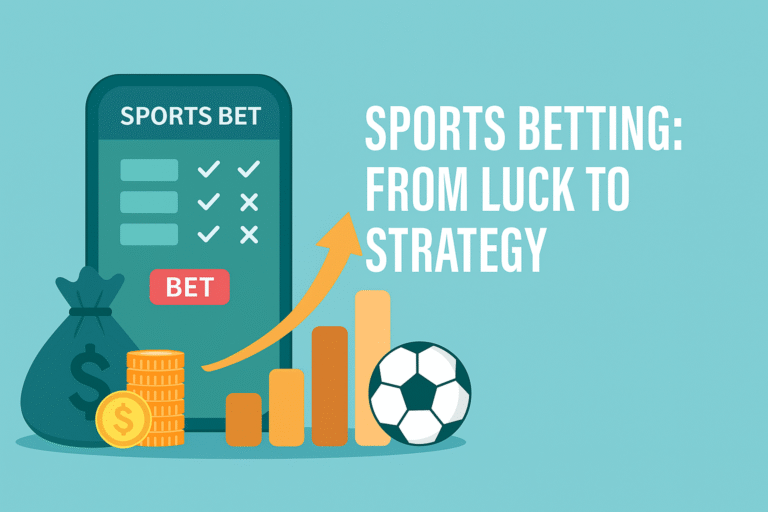Sports betting isn’t a game. It’s a business. And like every business, it has customers, a product, and profit. The product is the illusion of control. The profit? It always goes to the house — unless you know exactly what you’re doing.
Mistake #1: You Bet to “Win”
Most bettors don’t have a plan. They bet to “win” — not to build ROI, not to manage risk, not to find value. They bet because they “feel it.” Betting isn’t intuition. It’s numbers, discipline, and accepting that you’ll lose more often than you win.
Mistake #2: You Don’t Understand Odds
If the odds are 2.00, the implied probability is 50%. If the real chance of that outcome is 40%, you’re overpaying. Bookmakers don’t price odds based on belief — they use models, data, and margin. You use instinct. Who do you think has the edge?
Mistake #3: You Bet All the Time
Betting isn’t a daily obligation. If there’s no value, you don’t bet. If you don’t have an edge, you don’t bet. If you’re betting because “it’s Champions League night” or “there’s a big match,” you’re betting for entertainment — not outcome. And the bookmakers know it. That’s why they offer bonuses, free bets, and cashouts. To keep you in the system.
Bookmakers don’t need to predict correctly. They need margin. If the margin is 5%, then for every €100 wagered, they keep €5 — regardless of the result. Betting is zero-sum for players, but not for the house. The house pays out less than it takes in. Always.
Mistake #4: You Don’t Track Anything
If you don’t keep records, you don’t have insight. You don’t know what you’re betting, where you’re losing, or what works. You’re not analyzing — you’re guessing. And you’re probably only “remembering” the wins while forgetting the losses. That’s the most dangerous bias of all.
Betting Is a Business — Not Entertainment
If you don’t treat it like an investment, you’re a customer. If you don’t have a plan, you’re part of the bookmaker’s profit. Betting isn’t for everyone. It’s for the few who know how to lose correctly — and win when there’s real value.



